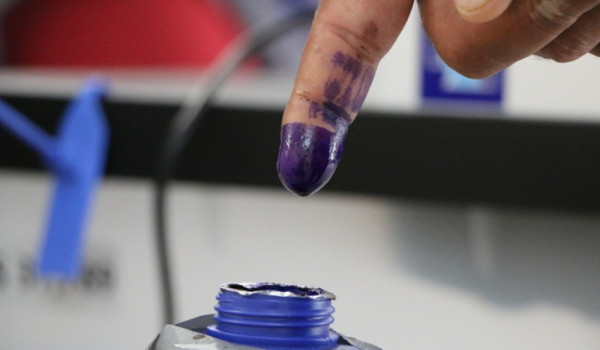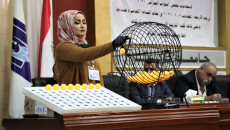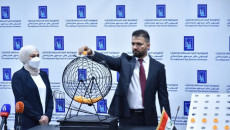The new electoral law of Iraq has encouraged nominees with no political affiliation or support to join the race for the Iraqi parliament in Baghdad, pushing 111 candidates to rival in the disputed territories.
56 independent candidates in Kirkuk, 28 in Ninewa, 35 in Diyala and 19 in Salahaddin are competing parliamentary candidates of the leading political parties.
Kirkuk: one million voters
In the fully disputed province of Kirkuk, over one million voters out of 1.6 resident will vote no nominate 12 MPs out of 130 candidates in three electoral districts. Each district nominates a female candidate to the 329 seats of Iraqi parliament as women quota per the new electoral law endorsed by the Iraqi parliament in 2019.
56 of Kirkuk candidates have been registered by Iraq's Independent High Electoral Commission IHEC as independent candidates with no direct support from any political party or coalition.
17 out of 35 candidates in the first electoral district are independent including five female candidates compete for five seats. In electoral district two, 21 candidates out of 56 are independent race to win four seats only.
For the three seats of the third electoral district of Kirkuk, 39 candidates, 18 independent, have been registered.
The oil rich city of Kirkuk, located 238 kilometers north of Baghdad, is an ethnically mixed province of Kurds, Sunni and Shiite Arabs, and Turkmen. It has long been at the center of disputes between Baghdad and the autonomous Kurdistan Regional Government KRG.
The new electoral law ratified last November, a key demand of demonstrators in 2019, changed each of the country’s 18 provinces into total 83 electoral districts in order to prevent parties from running on unified lists, which has in the past helped them easily take all the seats in a specific province. Instead, the seats would go to whoever gets the most votes in the electoral districts.
Heat race in Ninewa
The province of Ninewa has 31 seats in the Iraqi parliament, 8 for women and four for the minorities. Over 2,330,000 voters will ballot the winners out of 401 nominees in 750 polling stations.
The disputed territories in Ninewa are within four electoral districts where 28 candidates are registered for the 14 seats.
Three independent candidates, including two women, out of 17 are enlisted for the first electoral district.
In the second electoral district, two men and a woman compete 20 candidates of the political parties over four parliamentary seats.
Among 15 nominees in electoral district three, four candidates are independent while in electoral district four, 40 candidates, 17 of them independent, race over only four seats.
The 329-member house of representatives was elected in May 2018. The vote is held every four years, but 2019 protesters have been demanding early elections.
Out of 40 million population, 25 million eligible voters run to the ballots on October 10th to elect only 329 members into Iraqi parliament out of 3,234 nominees.
Diyala: The fourth electoral district
Four million voters in Diyala are distributed over four electoral districts to determine 14 seats, four allocated for women quota, out of 164 nominees.
About 200,000 to 250,000 voters of electoral district four from the multi-ethnic towns of Khanaqin, Qaratapa, Sadiya, Hamrin, Kifri suburbs and Jalawla are to vote for 35 candidates, eight of them independent including a female candidate racing for three seats only.
Lately, Arabs and Turkmens called on IHEC to postpone elections in Kirkuk for a week, a proposal rejected by IHEC and the Kurdish parties.
Salahaddin Province: 19 independent candidates
Over one million voters of Salahaddin province are voting in three electoral districts for 12 seats for which 194 nominees compete, 61 one of them are women.
The district of Duz Khurmatu is the only disputed town of the province where 150,000 people in the second electoral district are to choose four candidates among 62 competing, 19 of them are independent including six female candidates.







